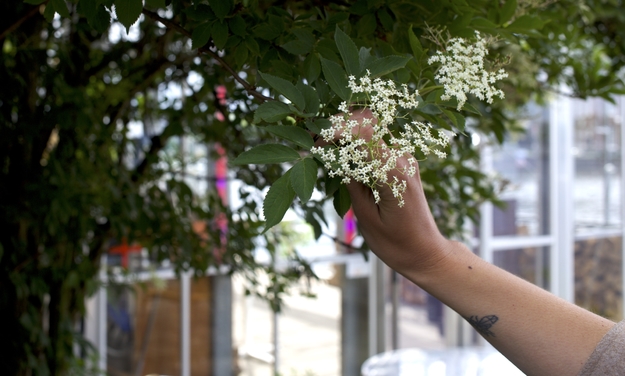What you will do
This workshop will take place outside in all weathers, as it is important to get fresh air in sun and rain. Please come prepared for it!
Lynn Shore
The natural world has always deeply fascinated Lynn – we are part of it and need to respect it. She expresses this through teaching, writing and being in green spaces. Her professional background is in science and special education, herbalism, permaculture and nature education. Outside of paid work she is involved in creating urban foraging sites and increasing food sovereignty.
Tickets
Full price €35 | Discount price € 25
We give a discount to students, stadspas and artists. If this applies to you we might ask to see your kvk nr/portfolio or student card for this option.
Information
11th March, 15:00-17:00
We maintain a minimum of 6 participants.
Please note that, this workshop will be held in English.
For questions, please send an email to workshop@mediamatic.nl.
We are taking corona safety into account at our workshops.
Read our ticket terms and conditions here.





